Are you passionate about human rights and eager to make a difference? Writing an advocacy letter can be a powerful tool in raising awareness and influencing change. In this article, we'll explore effective templates and strategies to articulate your thoughts clearly and persuasively. Join us as we delve into the essentials of crafting a compelling letter that can resonate with your audience and inspire action.
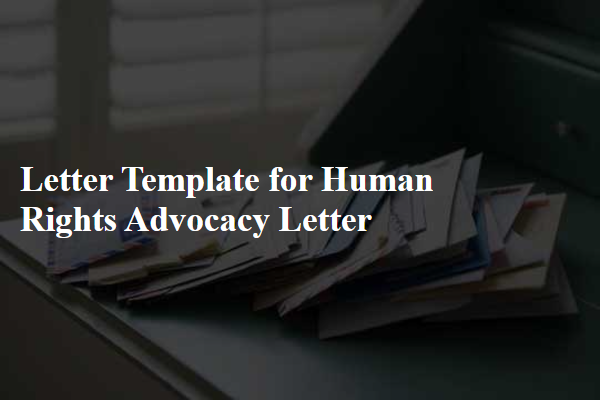
Clear and Specific Objective
Human rights advocacy letters aim to address issues such as injustice and discrimination while encouraging action from relevant authorities. Specific objectives include raising awareness about human rights violations, lobbying for legislative changes, and urging the protection of marginalized communities. Advocacy focuses on comprehensive issues like freedom of speech, gender equality, and racial discrimination, emphasizing the plight of individuals in areas like Myanmar or Venezuela facing oppression. Moreover, a clear call to action, such as signing petitions or contacting local representatives, empowers individuals to participate in the campaign for justice. Targeted outreach can include international organizations like Amnesty International, which regularly mobilizes public support for human rights compliance and reform.
Persuasive Language and Tone
Human rights advocacy letters demand persuasive language and a compelling tone to effectively address violations and rally support. Advocacy efforts often hinge on key issues, such as freedom of expression, gender equality, or racial justice. Utilizing powerful anecdotes, statistics (e.g., over 1.4 billion individuals living in extreme poverty), and specific events (like the annual International Human Rights Day on December 10) can strengthen the argument. Additionally, referring to established entities such as the United Nations and their Universal Declaration of Human Rights encourages credibility. Engaging a target audience, whether governments, organizations, or communities, calls for clear, direct appeals that highlight both the urgency of the situation and the moral obligation to act, emphasizing the need for solidarity within the global human rights movement.
Accurate and Relevant Data
Human rights advocacy requires accurate and relevant data to effectively communicate the state of human rights in various regions. In countries experiencing systemic oppression, such as Myanmar, data on political prisoners (estimated at over 1,600) provides critical insight into human rights abuses. Furthermore, the Global Human Rights Tracker reports rampant violations against minority groups, with statistics indicating a rise of 40% in hate crimes against members of the LGBTQ+ community in the past five years across multiple nations. Specific case studies, like the treatment of Uighur Muslims in China's Xinjiang region, highlight mass internment camps, claiming over one million individuals detained. This data not only informs policymakers but also empowers grassroots organizations, enabling them to advocate effectively for change and hold violators accountable. The comprehensive approach to gather qualitative and quantitative data enhances advocacy efforts, ensuring they resonate with the global audience and spur action.
Personal Stories or Testimonials
Personal stories serve as powerful testimonials that emphasize the urgency of human rights advocacy. Individuals such as activists, refugees, or victims of injustice often share experiences that illustrate the impact of violations. For instance, a Syrian refugee might recount the harrowing journey from Aleppo to a safer country, highlighting the loss of family and the struggle for basic needs in temporary shelters. Statistics show that approximately 68 million people are forcibly displaced worldwide, pointing to a growing humanitarian crisis. In another case, a former political prisoner from Belarus may provide insight into the oppressive tactics used by authorities during protests against government corruption, such as arbitrary detention and torture. These narratives not only humanize the statistics, making the abstract notion of human rights violations tangible, but also catalyze community action and influence policymakers to enact meaningful reforms.
Call to Action and Contact Information
Human rights advocacy plays a vital role in promoting justice and equality globally, often mobilizing individuals and organizations to address pressing issues like discrimination, freedom of speech, and the right to education. Engaging in campaigns, such as those led by Amnesty International or Human Rights Watch, often centers on specific events like the Universal Declaration of Human Rights Day, celebrated annually on December 10. Advocates utilize various platforms to raise awareness and challenge violations against vulnerable communities, stressing the importance of actions such as signing petitions or contacting local representatives, thereby amplifying marginalized voices. Notable figures in this domain, like Malala Yousafzai, inspire action by highlighting the need for global solidarity to achieve tangible outcomes that uphold the dignity and rights of all individuals.

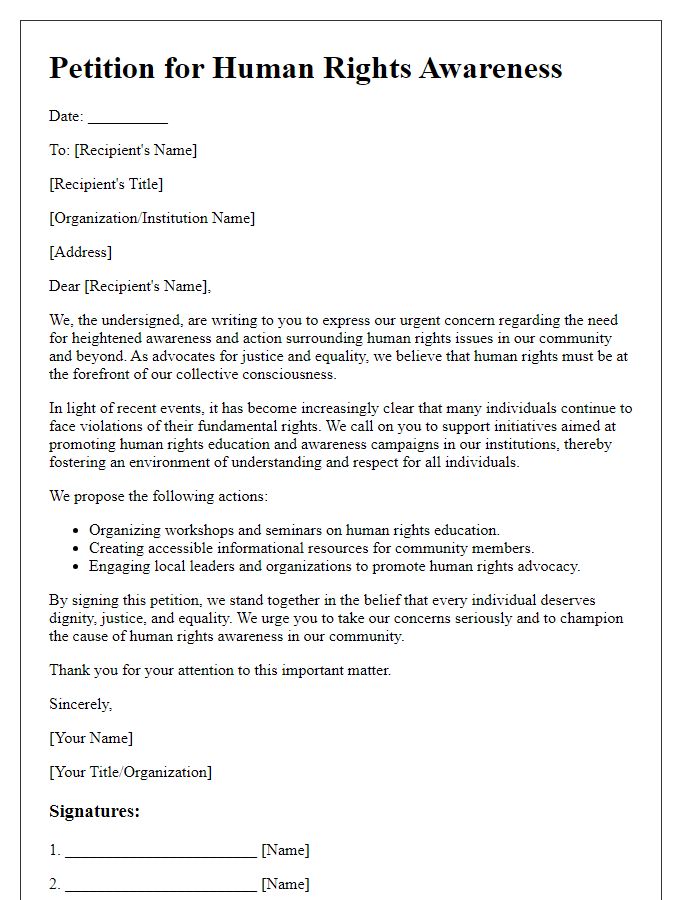
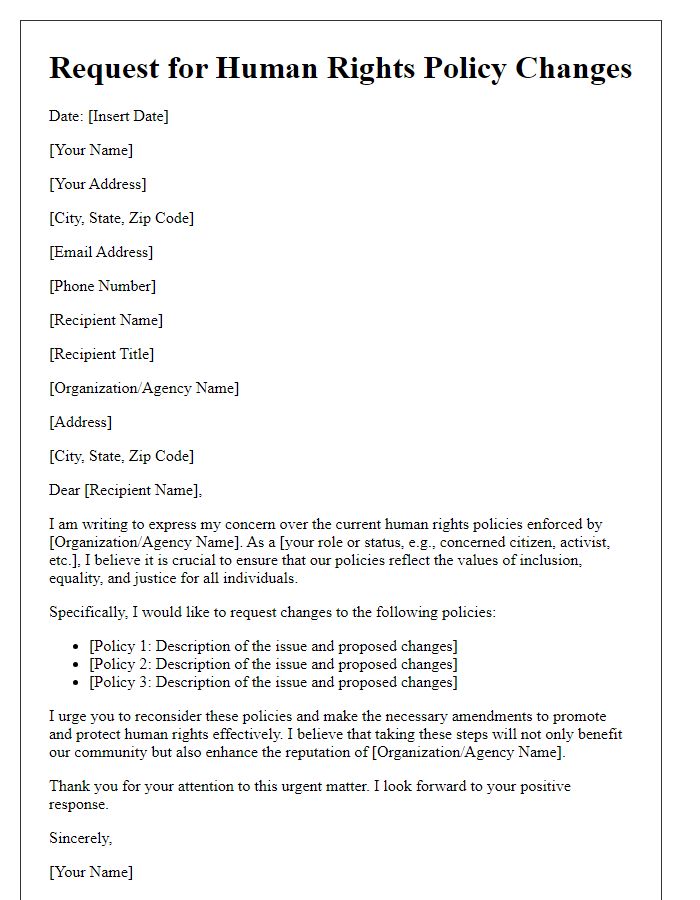
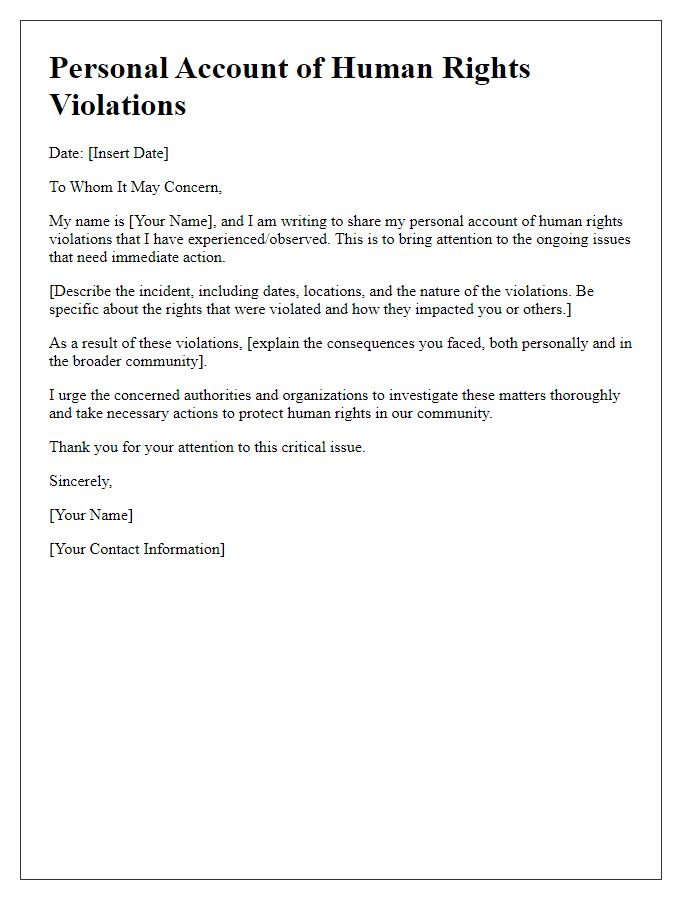
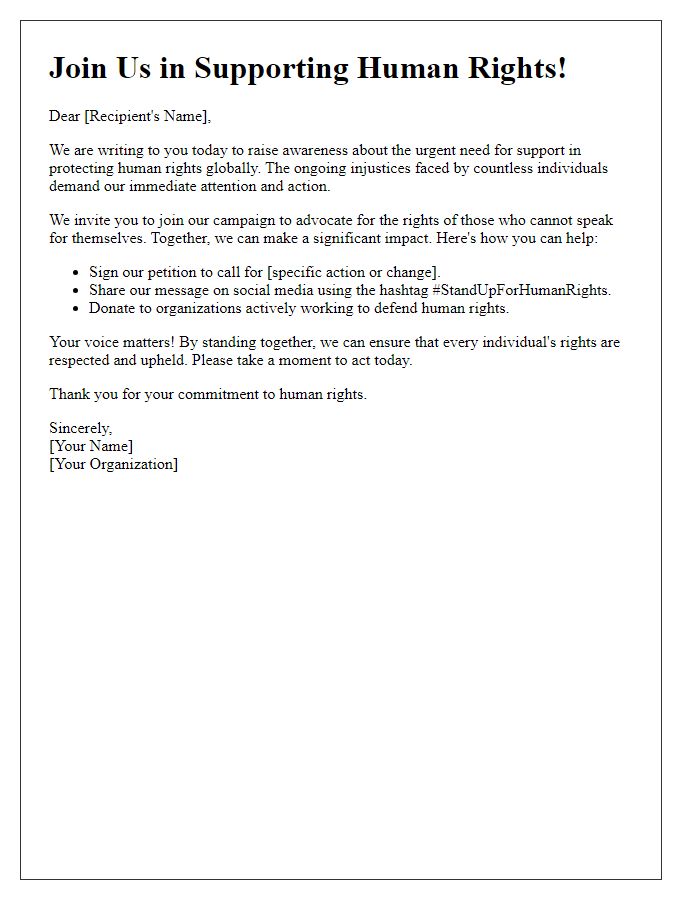
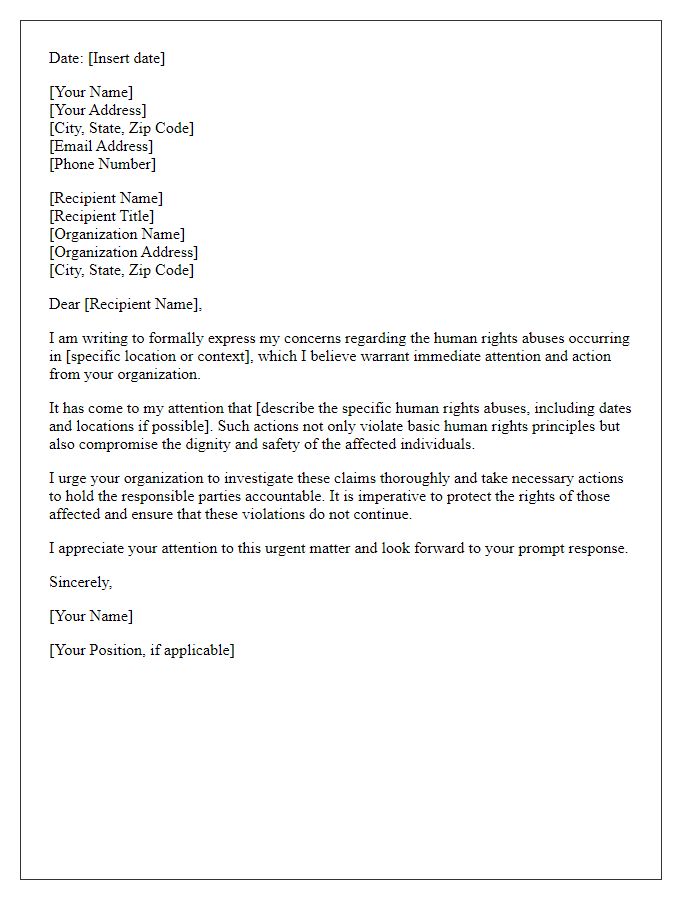
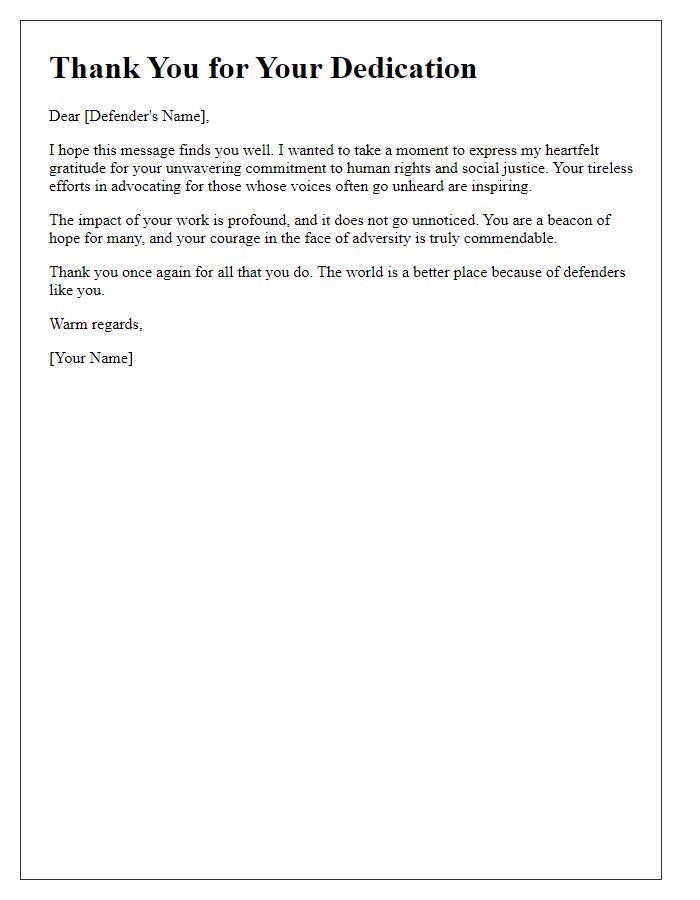
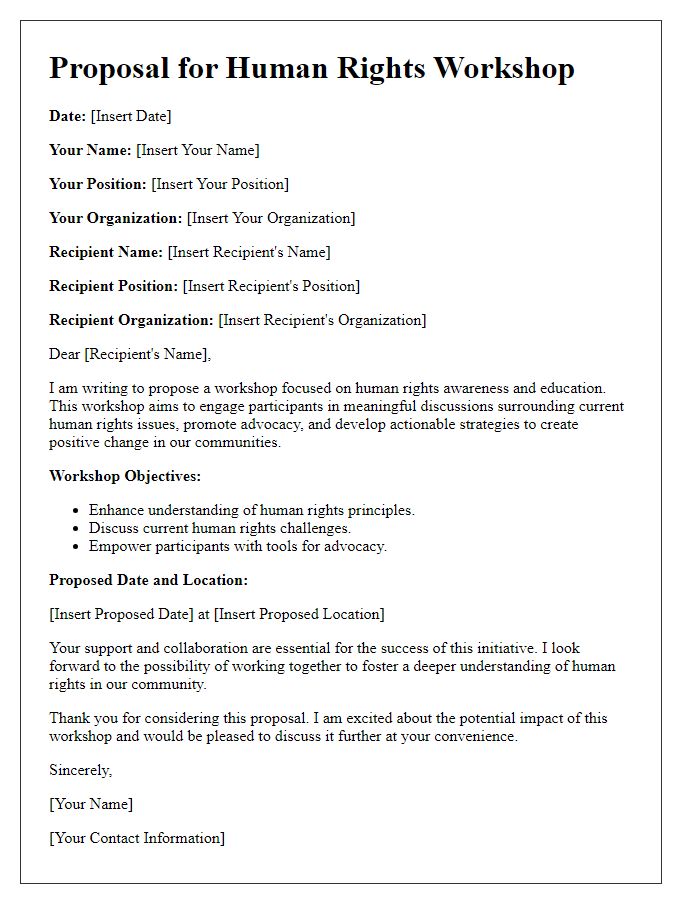
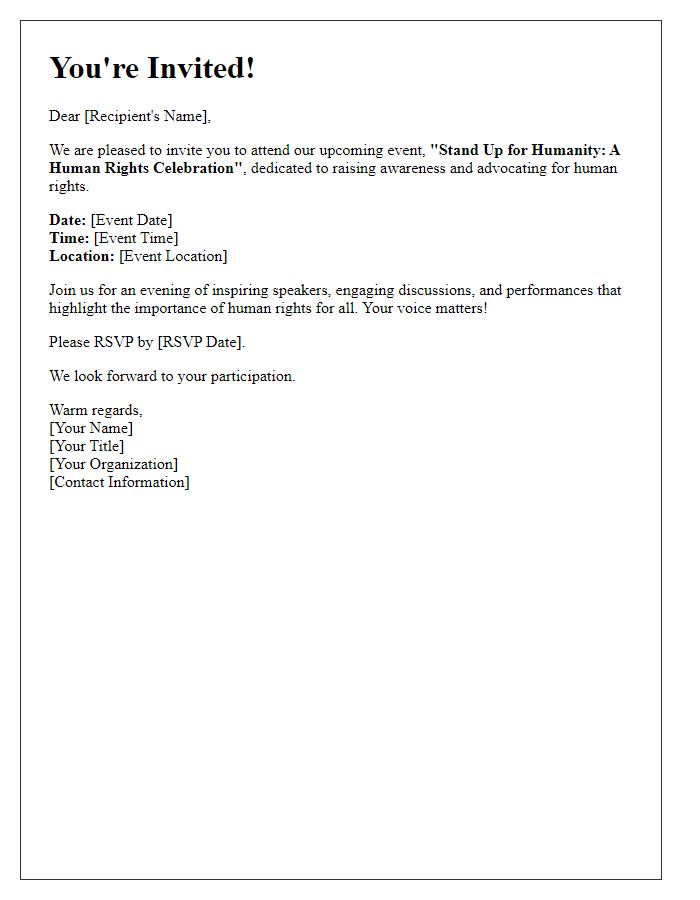
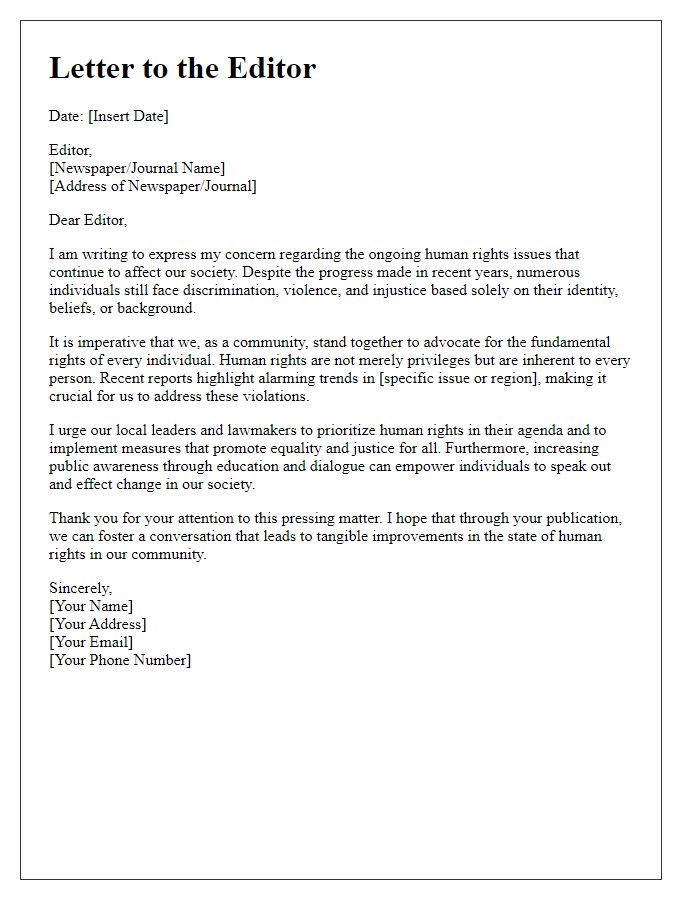
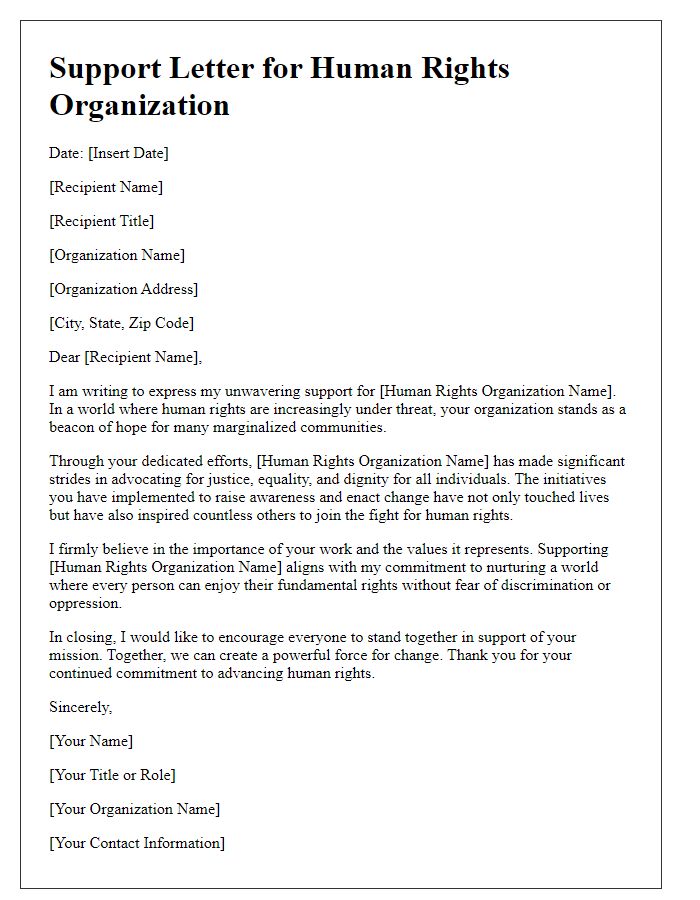


Comments